May 26, 2025 | 12:35 GMT +7
May 26, 2025 | 12:35 GMT +7
Hotline: 0913.378.918
May 26, 2025 | 12:35 GMT +7
Hotline: 0913.378.918

Le Quoc Thanh, Director of the National Agricultural Extension Center, spoke at the forum. Photo: Vo Dung.
Climate change is a significant challenge to human life and the environment, not only affecting one country or region but globally. Climate change causes more extreme natural disasters, significantly affecting human life and socio-economic development, especially in agriculture.
According to research and forecasts from the Intergovernmental Panel on Climate Change (IPPC) and the World Bank (WB), if the sea level rises by 1 meter in Vietnam, it will inundate about 0.3 to 0.5 million hectares in the Red River Delta, the Mekong Delta will have 1.5-2.0 million hectares, and in years of heavy floods, about 90% of the Mekong Delta area will be flooded from 4-5 months, of which mainly rice land is flooded or saline and cannot be produced. Climate change also increases natural disasters, causing crop productivity to decrease.
In recent years, the epidemics of brown planthoppers, yellow dwarf, and leaf-curled dwarf in the Mekong Delta have become increasingly complicated, affecting the ability to intensify farming, increase crops, and reduce rice output. Climate change can impact seasons, changing seasonal structure, regional planning, irrigation techniques, pests, productivity, and production; degrades land resources, threatens biodiversity, reduces quantity and quality due to flooding and drought; increases the risk of extinction of animals and plants, and causes the disappearance of valuable genetic resources.
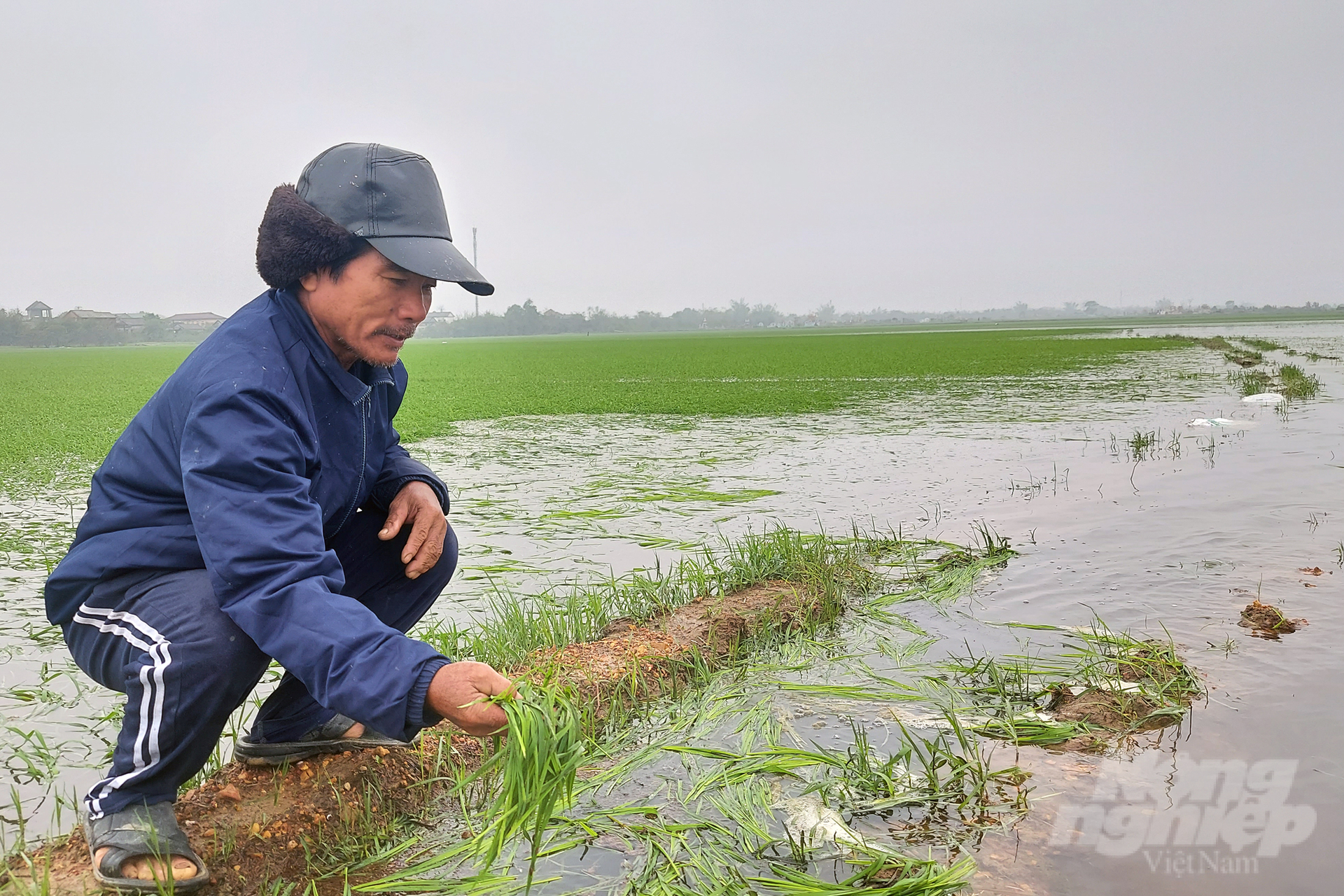
Every year, natural disasters cause massive damage to agricultural production. Photo: Vo Dung.
Vietnam is one of the countries heavily affected by natural disasters and climate change. Storms, floods, landslides, flash floods, cold weather, drought, and many other natural disasters have hindered the country's development. In recent years, extreme natural disasters have occurred more often, causing more loss of life and significantly affecting the economy. There are many types of natural disasters. Each type causes different impacts and effects on production and human life.
Le Quoc Thanh, Director of the National Agricultural Extension Center, said that the forum is an opportunity for delegates from provinces and cities to share lessons learned, essential solutions for the community to effectively prevent and control, and choose suitable production forms to live together and develop sustainably in the face of climate change; discuss practical solutions to build appropriate action plans with the community; helping the community self-identify types of natural disasters along with agricultural extension officers and the agricultural sector to develop appropriate production strategies.
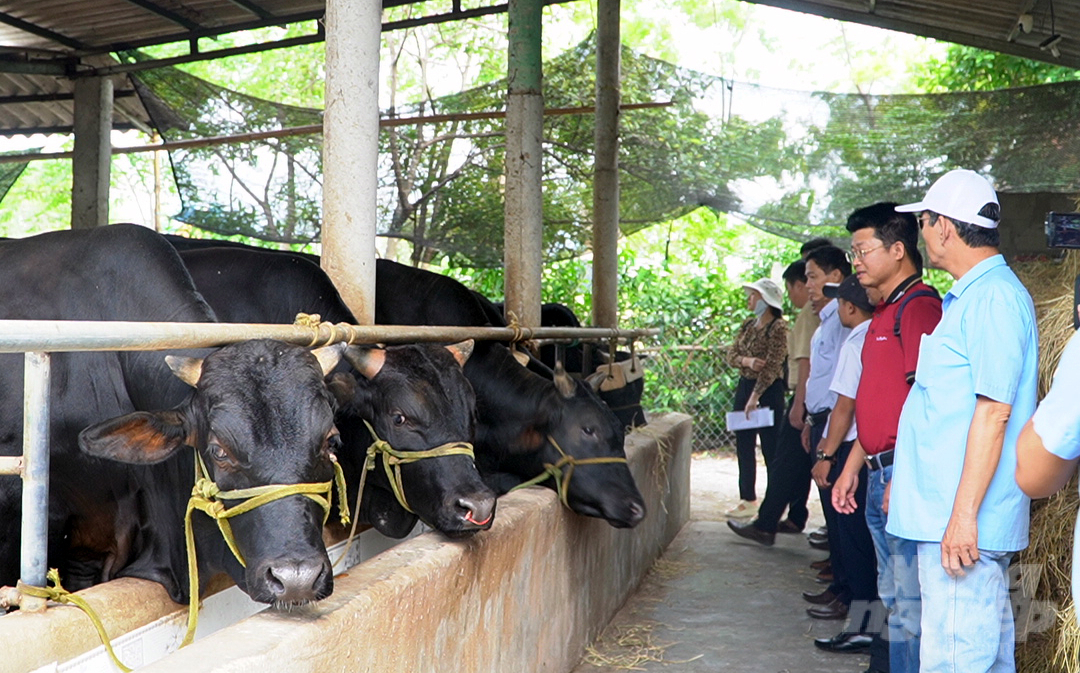
In Quang Tri, many models of creating livelihoods adapted to climate change have been deployed for farmers. Photo: Vo Dung.
Recently, the National Agricultural Extension Center has proposed many technical solutions to help farmers adapt and mitigate the impact of natural disasters on agricultural production. Solutions have been proposed and implemented in many localities, such as proactively arranging production structures to avoid natural disasters, applying appropriate farming techniques, changing the structure of crops and seasons, applying reasonable and economical watering techniques, and applying appropriate technical measures.
Delegates from the agricultural extension centers of the provinces participating in the forum also shared many experiences in building models to adapt to climate change and stated difficulties and aspirations for future construction work. Building models is more convenient.
In Quang Tri province, there have been many livelihood models to adapt to climate change and overcome the consequences of natural disasters in agricultural production to help farmers in affected areas have appropriate solutions to develop their livelihoods sustainably and effectively. Typically, the model of raising cows, goats, pigs, chickens, and ducks; converting rice land lacking water in the summer-autumn crop to growing biomass corn; Shrimp farming in 2 stages, intercropping.
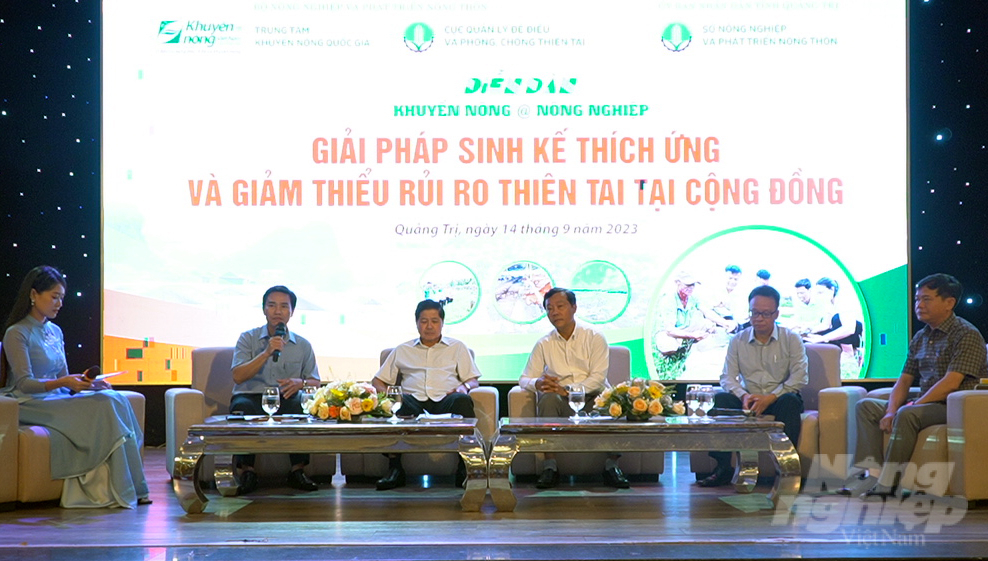
Delegates attending the forum exchanged experiences in building production models adapted to climate change. Photo: Vo Dung.
In the coming time, the National Agricultural Extension Center will continue to deploy many solutions to help farmers minimize risks caused by natural disasters. In particular, focus is placed on forecasting, prevention, and proactive response. Governments at all levels need to coordinate effectively to simultaneously implement two goals of response and mitigation of impacts of natural disasters and adaptation to climate change.
Mechanisms, policies, and guidelines must be improved to develop agricultural production to reduce natural disaster risks in the community. In particular, the application and transfer of technical and technological advances to build and replicate sustainable livelihood development models and mitigate natural disaster risks in the community is one of the critical factors.
Translated by Tu Quyen
![Advanced mariculture – an inevitable trend: [4] Accompanied by scientists](https://t.ex-cdn.com/nongnghiepmoitruong.vn/608w/files/sohk/2025/05/13/1941-pgsts-vo-van-nha-140958_717.jpg)
(VAN) According to Assoc. Prof. Dr. Vo Van Nha, Director of the RIA III, the development of advanced offshore mariculture is no longer an option but an essential path for Vietnam’s fisheries sector.

(VAN) Vietnam is intensifying the development of mollusk farming areas that meet international standards, aiming for sustainable growth and enhancing its export position in the global seafood market.
![Advanced mariculture – an inevitable trend: [3] Policy-driven momentum](https://t.ex-cdn.com/nongnghiepmoitruong.vn/608w/files/doanhtq/2025/05/21/0104-0616-0348-nuoi-bien-170339_789.jpg)
(VAN) To ensure the success of offshore mariculture that uses advanced technologies, it is essential to establish supportive policies that inspire both individuals and enterprises to invest with confidence.
![Advanced mariculture – an inevitable trend: [2] Outstanding results](https://t.ex-cdn.com/nongnghiepmoitruong.vn/608w/files/sohk/2025/05/12/4632-4136-nuoi-bien-11-164117_819.jpg)
(VAN) Pilot models of high-tech offshore mariculture in Vietnam, particularly in the South Central Coast region, have demonstrated exceptional economic returns and sustainability, setting a new direction for the country’s aquaculture industry.
![Advanced mariculture – an inevitable trend: [1] Moving offshore](https://t.ex-cdn.com/nongnghiepmoitruong.vn/608w/files/phucpm/2025/05/18/0252-2436-nuoi-bien-6-162148_783.jpg)
(VAN) Mariculture using advanced technology and moving offshore is an inevitable trend, as nearshore areas increasingly reveal limitations.
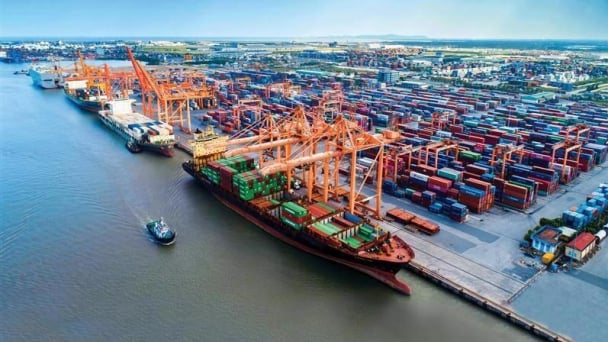
(VAN) South Korea is currently the second-largest investor in Hai Phong in terms of the number of projects (186 projects) and the largest in terms of total registered investment capital, reaching USD 14.2 billion.
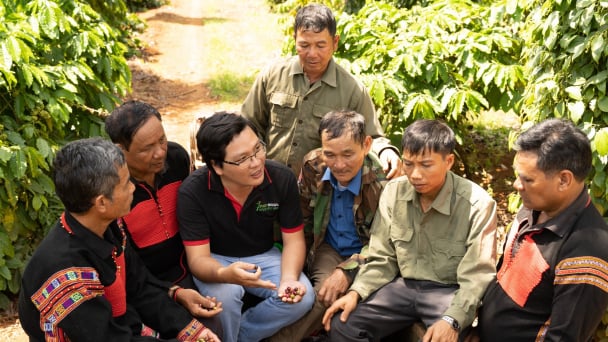
(VAN) As consumers become more environmentally conscious, legal regulations grow increasingly stringent...